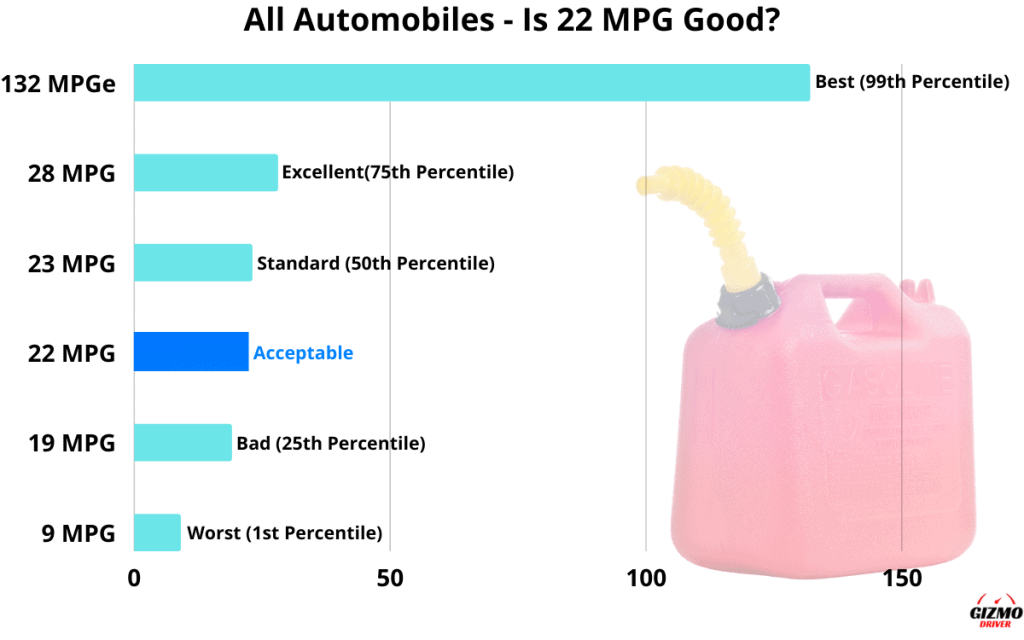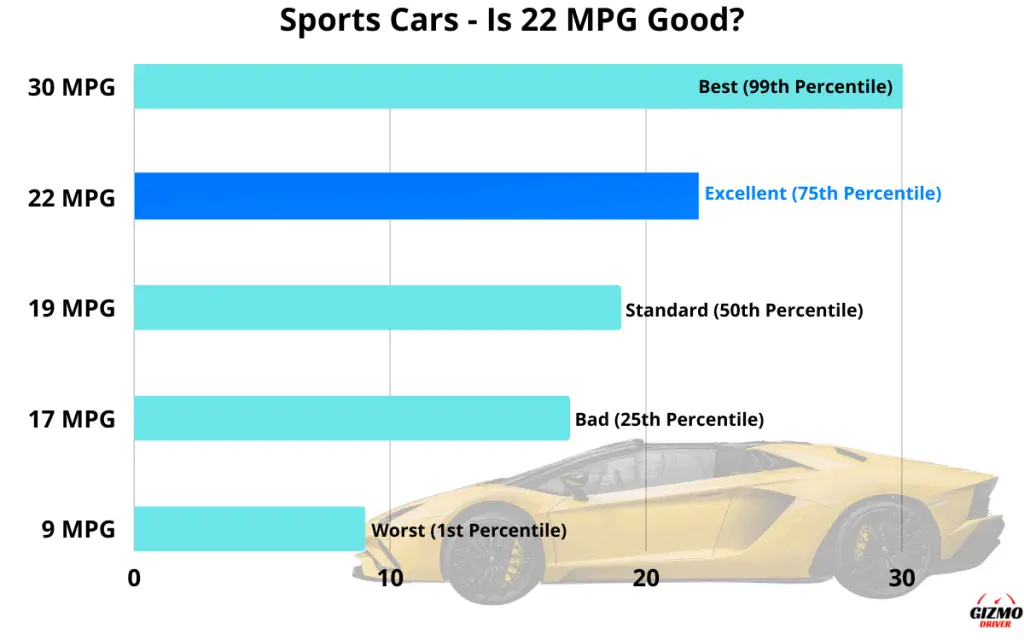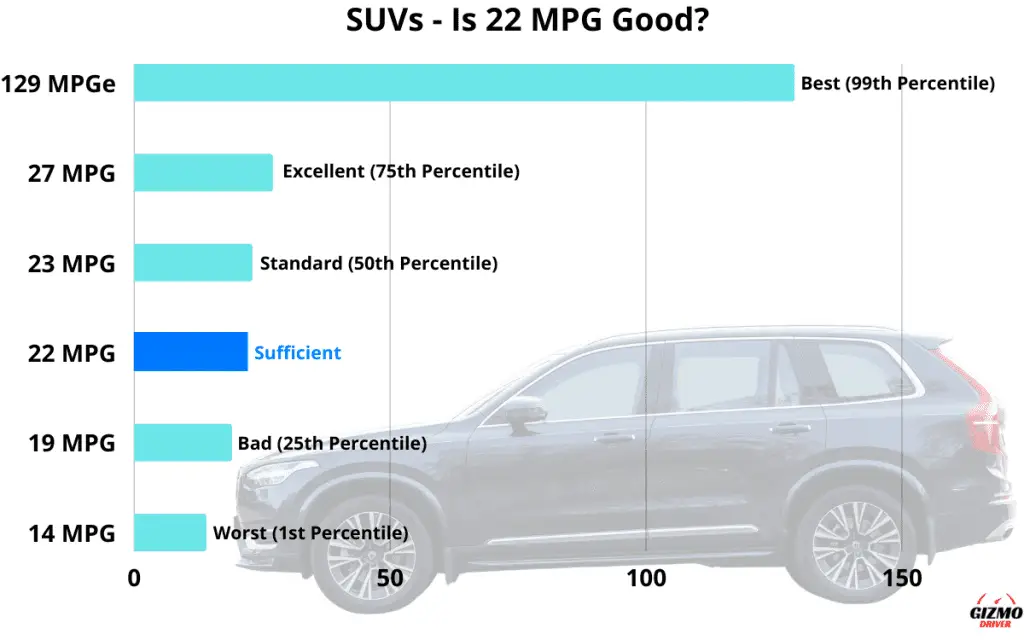Is 22 MPG Good? Understanding Fuel Economy & Gas Mileage
What exactly constitutes "good gas mileage" in today's automotive landscape? The answer, surprisingly, isn't a simple number; it's a complex equation influenced by vehicle type, driving habits, and even the price of fuel itself. In an era where environmental consciousness and economic prudence intertwine, understanding fuel efficiency has become more crucial than ever.
The concept of "good gas mileage" is inherently relative. A car achieving 40 mpg might be considered excellent, but that assessment shifts when comparing it to a large SUV or a pickup truck, where different standards apply. It is easy to state that a car that is able to achieve 40 mpg gets good gas mileage.
Let's break down the key elements that influence this perception, considering vehicle categories and driving scenarios.
| Aspect | Details |
|---|---|
| Vehicle Type | Different vehicle categories have varying average MPG. Compact SUVs average between 18-27 mpg in the city and up to 33 mpg on the highway. Larger SUVs may range from 13-22 mpg in the city and 18-27 mpg on the highway. Pickup trucks have fuel efficiency ratings similar to large SUVs. |
| Driving Conditions | Factors such as city vs. highway driving significantly affect MPG. Stop-and-go traffic consumes more fuel compared to steady highway speeds. |
| Engine Type | Hybrid, diesel, and gasoline engines offer varied fuel efficiency. Consider how your engine works in different driving conditions. |
| Aerodynamics | The design of a vehicle influences its aerodynamic drag, impacting fuel consumption. |
| Vehicle Size | Larger and heavier vehicles generally consume more fuel than smaller, lighter ones. |
| Personal Driving Habits | Aggressive driving, sudden acceleration, and excessive idling can drastically reduce MPG. |
| Fuel Economy is a key factor | Fuel economy is a key factor in the operating costs for vehicles |
| MPG for a Midsize Pickup Truck | 22 mpg is considered good, positioning it at the 75th percentile of fuel efficiency for its category. |
| For a Typical Car | For a typical car, 21 mpg is not good gas mileage. |
| Difference in Gas Mileage | A car with 21 mpg gets 8.7% less gas mileage than the median car, which gets 23 mpg. |
| SUV Gas Mileage | SUVs are known to have notoriously bad gas mileage. Getting 22 mpg on the highway is the average high. Few break the 20 mpg mark for city gas mileage. |
| Minivan Highway Gas Mileage | Among minivans, the Honda Odyssey gets the best highway gas mileage. |
| For the Average Vehicle | For the average vehicle, 17 mpg is a very bad gas mileage. |
| Fuel Efficiency Comparison | A 17 mpg car is 26% less fuel efficient than the median vehicle, which gets 23 mpg. |
As an illustrative example, consider a midsize pickup truck. Achieving 22 mpg is considered respectable, placing it in the upper echelon of its class. However, the same number might be seen as less impressive when compared to a compact car. It is considered at the 75th percentile of the gas mileage for all midsize pickup trucks.
The efficiency of your vehicle plays a critical role in its operating costs. Furthermore, how you approach the art of driving itself has a direct impact on the fuel efficiency of your vehicle. Aggressive driving, such as sudden acceleration and hard braking, rapidly diminishes fuel economy. Consistent speed and smoother maneuvers can drastically improve your MPG. For instance, trading a 2017 Toyota Highlander (22 mpg) for a RAV4 could yield annual gas savings of around $396. Opting for a RAV4 hybrid could further boost savings to approximately $867. The more fuel you use, the more it costs to keep your car running. The cost of gas varies but its effect on your operating costs for vehicles is critical.
When examining fuel economy, it's more about the percentage change than the raw number. This allows you to focus on improving what you already have. Improving your gas mileage starts with knowing your current MPG. Use tools like fuelly or your car's trip computer to track every gallon and distance traveled.
The pursuit of better gas mileage is a continuous journey, it's essential to know your car's current fuel consumption. By tracking this data, you're equipped to make informed choices.
The notion of "good" gas mileage is also relative to the type of driving. What may be considered excellent for a compact car might be ordinary for a larger SUV. This means that fuel efficiency is a key factor to calculate the operating costs for vehicles.
For some, any vehicle surpassing 20 mpg in the city is considered decent, while anything beyond 25 mpg is regarded as excellent. Cars that achieve 40 mpg are likely to help you keep fuel costs low, and anything above this is even more impressive.
There are several methods to determine your MPG.
- Manual Calculation: Fill your tank, reset your trip odometer, drive until the tank is nearly empty, refill the tank, and divide the miles driven by the gallons used.
- Vehicle Trip Computer: Most modern cars have a trip computer that displays instantaneous and average MPG.
- Fuel Tracking Apps: Apps like Fuelly allow you to track your fuel consumption over time, providing valuable insights into your driving habits and vehicle performance.
Factors like vehicle size, engine type, aerodynamics, and driving conditions all play a role in determining MPG.
In the realm of SUVs, gas mileage can vary significantly. For example, consider the Ford Explorer (20 mpg), the Hyundai Palisade (21 mpg), the Honda Pilot (22 mpg), and the Toyota Highlander. These are all examples of SUVs that offer reasonably competitive fuel efficiency. The MPG for compact SUVs averages between 18 and 27 mpg in the city and up to 33 mpg on the highway, whereas larger SUVs range from 13 to 22 mpg in the city and 18 to 27 mpg on the highway. Pickup trucks have similar fuel efficiency ratings to larger SUVs, with smaller models averaging around 16 to 23 mpg in the city and up to 25 mpg on the highway.
Even small changes can make a big difference. To save a gallon per 100 miles, you need to jump up to 33.3 mpg. Finding a good mpg is all about using less gas to go a longer distance. In this regard, fuel economy is a key factor in the operating costs for vehicles. When seeking a new vehicle, compare gas mileage and greenhouse gas emissions of new and used cars and trucks.
Here's the thing: it is important to know your current mileage. You can improve your gas mileage by first knowing what your current gas mileage is or you will not know if it got any better. You can find out the gas mileage of your car by entering the distance you have travelled (from past and present odometer reading) and the amount of fuel that was used.
For a typical car, 21 mpg is not good gas mileage. A car with 21 mpg gets 8.7% less gas mileage than the median car, which gets 23 mpg. In fact, for the average vehicle, 17 mpg is a very bad gas mileage. A 17 mpg car is 26% less fuel efficient than the median vehicle, which gets 23 mpg. Cars that can achieve 40mpg are likely to help you keep fuel costs low, and anything above this is even more impressive.
Among minivans, the Honda Odyssey gets the best highway gas mileage, but, like the others, it still can't achieve 20 mpg in the city. For example, the Honda Odyssey and Toyota Sienna 2WD get 22 mpg. For me, anything that gets better than 20 around town is good, better than 25 in town is excellent. Granted, you have to purchase one with the 3.0l ecodiesel engine if you want to get the best gas mileage: 22 mpg city and 32 mpg highway.


